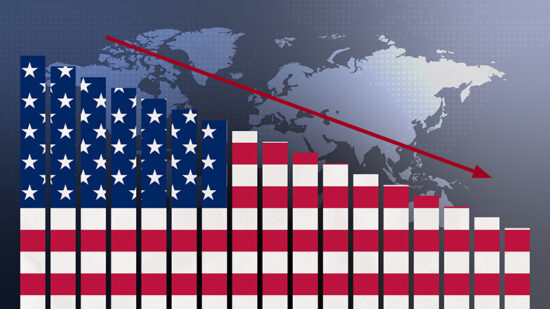There are certainly reasons to be fearful following disappointing US jobs data (only 98,000 jobs were created in March, well below the 180,000 forecast).
The volatility index (VIX) spiked as investors bought oil, gold, the Japanese yen and government bonds and sold off equities. But the markets have settled and the FTSE is currently 0.5% up.
This unease follows data showing that volatility was the flattest on record in first-quarter 2017, So is there actually anything for investors to be worried about?
And how do wealth and portfolio managers ensure that their funds are protected against any future volatility?
BMO global asset management investment manager Scott Spencer said: “Although the markets started low and there was some flight overnight they quickly recovered.
“As such, we haven’t done anything around this spike. In the past airstrikes or job data like this might have caused more volatility but the markets are in an upbeat mood.”
He added: “There is a lot of cash around as a result of QE and this is helping flatten volatility, However, we did buy two tranches of put options (with a six-month lifespan) last month to cushion the funds against market shifts.
“These options are very cheap currently because volatility is so low but we expect it might increase over the summer.”
Whitechurch financial consultants managing director Gavin Haynes, explained that he takes a long-term approach when investing in multi-asset portfolios and doesn’t trade on short term volatility spikes.
“That said, there are obviously measures against this risk built into our strategy,” he said.
“Negative correlation is one and when this starts to break down, as has been the case recently with equities and bonds, the role of infrastructure property or absolute return funds becomes more important.”
Architas senior investment manager Nathan Sweeney said he is cautious on the market currently. He explained that although the last quarter saw the lowest volatility on record, the second lowest was in Q4 2006 and followed by the crash in 2007.
“There are reasons to think that there might be increased volatility going forwards,” he said.
“The US Federal Reserve wants to reduce its balance sheet, president Trump might push through his tax policies (he has said he wants to reduce the 35% bracket to 20%) and there is inflation as a result of higher oil prices.”
However, Sweeney went on to say there are mitigating forces: “The rise of ETFs and index trading has meant reduced volatility generally. Oil prices are reducing slightly and the US Congress is fiscally conservative, Trump will have a real job getting that bill through.”








